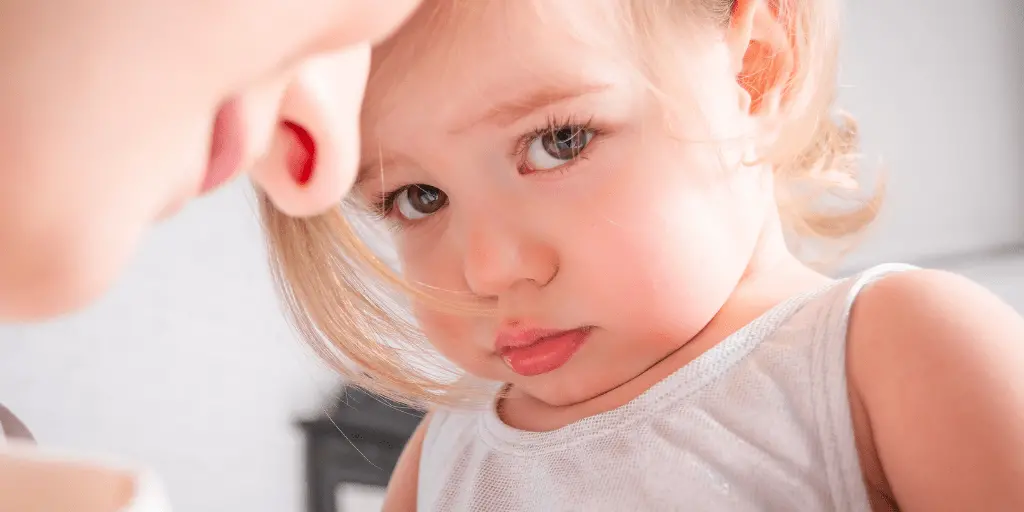
This post may contain affiliate links. Read my whole disclosure here.
Inside: If you find yourself yelling at kids, here are 7 easy steps to make sure that you connect with your children, repair the relationship, and become a calmer mom.

I entered the living room hoping to see my son getting dressed because we were already late for his friend’s birthday party. Instead, I saw him building a big pile of toys and books on the carpet. He was building a “book tent”.
Not only that I wasn’t happy to see that he is still in his pajamas, but the idea of a chaotic pile of books added even more frustration for me.
What it was supposed to be a joyful weekend morning turned out to be a lot more stressful than I imagined. I was in a hurry because I promised my friend that I will help her out with the decorations for the party so we needed to get there before the other guests.
But my son couldn’t care less.
I told him that the books can get damaged in that pile and asked them to put them back. I reminded him that he needs to get dressed quickly.
Then I returned to the bedroom to write the birthday card. When I came back to the living room to ask my son to sign his name on the card, I found the pile of books still on the floor. My son was playing with his toy train, still not dressed for the party.
I looked at the clock and took a deep breath. With my last resources of patience, I asked him if he needs help with getting dressed.
But he had other plans. For the next few minutes, he kept ignoring my requests and pushing all my buttons.
I knew that he was feeling disconnected by I didn’t have the time to deal with this. All I could think of was the fact that my friend was waiting for us.
He finally agreed to put on his clothes so I went to the balcony to get his shoes. As I was returning to help him get dressed I saw him grabbing the gift bag from the table. It only took one second for it to fall on the floor. The bag was completely damaged and the case of the playdough set was slightly broken.
This was too much for me that morning! I snapped and I yelled at him.
I could hear my voice getting higher and angrier but I just couldn’t stop. All the things I knew about keeping my calm in difficult situations didn’t help at that moment.
My son stopped and looked at me with a frightened face. He had that look in his eyes that I wished he never had when looking at me. I could see that he was both surprised and scared by my reaction.
I didn’t know what to say. I saw him picking up the case with the play dough set and putting it back on the table. He looked at the gift bag and saw how damaged it was. To my surprise, he went to one of the kitchen drawers and brought some tape.
He placed the bag and the tape on the table and looked at me.
I knew he was sorry. And most of all, I knew that I dealt with the situation in the worst possible way.
I shouldn’t have yelled. I should have remembered that it’s my responsibility to control my own emotions. And I should have found a better way to deal with everything that happened that morning.
The first thing that I did was to take my phone and send a quick message to my friend telling her that we will be a little late. I wished I would have done this before instead of letting things get completely out of control.
Then I put the phone down and went to my son. I got down at his level and I did my best to repair things.
Some time ago, when I started my journey to becoming a calmer mom, one of the things that I wanted to learn was how to deal with these moments. Because I knew that no matter how hard I try there will still be moments when the anger will get the best of me.
 photo credit: choreograph / depositphotos.com
photo credit: choreograph / depositphotos.com
Unfortunately, that turned out to be exactly the case that morning. But it helped a lot to know the exact steps that I could take to repair the relationship with my son. This made a big difference for us that day!
I managed to turn things around and reconnect with my son. This meant a lot for both of us and offered us the chance to enjoy the rest of the day to the fullest.
The most important things to do after yelling at kids
What happened that morning inspired me to write this post and share the things that help me in these moments. If you ever find yourself in a similar situation I hope that these tips will help you too!
The things that we do after yelling at kids are very important. They help us repair the relationship and reconnect with the child. Also, they allow us to show kids that mistakes can be fixed!
When kids see us take responsibility for our emotions and making efforts to improve our behavior, they have a great example to follow!
I know that it would be ideal to never get into situations when we yell at the kids. But the truth is that for many parents yelling happens.
As you work on becoming a calmer parent, one important step in the journey is learning what to do after yelling at your child. So here there are 7 easy steps to help you deal easier with these situations!
1. Calm down
Before starting any discussion with your child, make sure that you calm down. If you start a conversation while you are still angry it’s more likely to get upset again and make things worse.
Amanda from Messy Motherhood offers a great list with 50 calm down strategies for parents that you can download from her blog. They can help you prevent many angry moments but they can also be used after you yell.
If I feel that I’m still angry after yelling, I tell my son that I need a moment to calm down before talking. This gets me a few moments to get my emotions back in control. And it also inspires him to do the same when he gets very angry.
2. Take responsibility for your anger and explain what happened
Taking responsibility for your anger is a huge step towards becoming a calmer parent. When you believe that the kids generate your anger, you feel powerless because the child’s behavior is out of your control.
Instead, if you take ownership of your emotions, you feel in control and you realize that you get to choose how you react to the child’s behavior.
Start the discussion with your child by telling them what happened. An essential thing is not to blame them for your reaction. Admit that you got overwhelmed by strong emotions and let the child know that what you did was wrong.
Here are two examples that illustrate this idea:
- Saying “I got angry because you damaged the gift and this was not nice of you to do” puts the blame on the child. And the truth is that it’s not the child’s fault! The way I react to my child’s behavior is entirely up to me. Blaming the child only makes him feel even worse and damages our relationship.
- Saying “I got angry when I saw that the gift was damaged. I was very stressed because we were late and I couldn’t handle my emotions. It was wrong for me to yell. This was not a good way to react.” is a lot better alternative. It focuses on the parent and not on the child. It offers a good example of admitting mistakes and making the first step towards fixing them.
 photo credit: Africa Studio / shutterstock.com
photo credit: Africa Studio / shutterstock.com
3. Apologize
A very true thing that I once read about apologizing is that a sincere apology should never include “buts”. Saying “I’m sorry for yelling but you make me angry” is more about blaming the child than about admitting fault.
So every time I apologize to my child I try to remember this and keep things as simple and clear as possible.
I usually say: “I’m very sorry that I yelled at you. I shouldn’t have done this and I apologize.”
Also, I sometimes add “No one is ever allowed to yell at you or treat you bad.” – This additional phrase is important to me because I want him to know that this behavior is unacceptable from anyone.
4. Use this magic phrase
Repairing things means more than apologizing. To make sure that you get the chance to do things right, use this simple question: “May I try again?”.
This offers you the chance to try again and handle the situation in a gentle way. This is very helpful for both you and your child. You will find better ways to handle these moments. Next time when emotions get hard to handle you will be more likely to remember a gentle way to deal with the situation.
Also, your child will see how you work on improving your behavior. This is an important lesson for kids and it can motivate them to do the same when they are overwhelmed with emotions.
5. Reconnect and repair the relationship
The most important thing to do after yelling at kids is to try to reconnect with them. The level of connection between a parent and a child has a lot to do with the child’s behavior.
When kids feel disconnected they are more likely to misbehave. And this brings even more strong emotions for the parents to handle. The best way to stop this vicious cycle is to make sure that you reconnect with your child after a difficult moment.
Reconnecting doesn’t have to be difficult. Spending one-on-one time with your child and doing something that you both enjoy is an easy way to rebuild the connection.
I try to make connection a priority every day and this helps a lot with making reconnection quicker and easier. Building a strong connection with my son has been the most helpful thing that I ever did as a parent. And I keep doing this every day! It helps my son feel loved and behave better. It also helps me accumulate fewer frustrations and negative emotions.
If you are struggling with finding time for connection every day, check out this easy habit that helped me spend quality time with my son every single day.
 photo credit: Yuganov Konstantin / shutterstock.com
photo credit: Yuganov Konstantin / shutterstock.com
6. Forgive yourself
This is a crucial step that we often forget! As parents, we tend to feel guilty for all our mistakes and this only brings more negative emotions that we need to handle.
This is why you should make forgiving yourself a priority. Being gentle with yourself allows you to regulate your emotional state and become a calmer person.
Dealing with guilt is not easy but learning to let go of it can have a huge impact on your life!
Here are some great tips to help you let go of mom guilt and focus on positive solutions for everyday struggles.
7. Take a break and keep track of your triggers
If you found yourself often in the situation when you get angry at your child you need to take a break and think about what is going on. It’s very easy to get overwhelmed and exhausted and this impacts your behavior towards your child.
Taking a break is a great way to “reset” your mood. Also, keeping track of your triggers will help you identify the situations that usually make you angry. This will allow you to work on improving your reactions or preventing the triggering situations.
I wrote more about the things that can help you replace anger with calm on this list of all the things that helped me become a calmer mom.
More support to stop yelling at your kids
If you are struggling with keeping your calm when dealing with difficult parenting moments, the 5 Day Stop Yelling Challenge created by Amanda from Messy Motherhood can offer you many helpful tips (and it’s free).
This challenge a good start point to help you make a change!
My journey to becoming a calm mom has many ups and downs. I try to learn from each of them and keep improving myself. I know that my son needs a calm mom and this is a great motivation!
Even when things don’t go as I wished, having these 7 steps to follow after yelling makes a big difference! I hope that they will bring more peace and connection to your home as well!
More from Playful Notes
- What to do instead of punishments? 5 gentle ways to discipline young kids
- 5 tips for overwhelmed moms that made a difference in my life
>> Want to remember this? Share these ideas to your favorite Pinterest board!
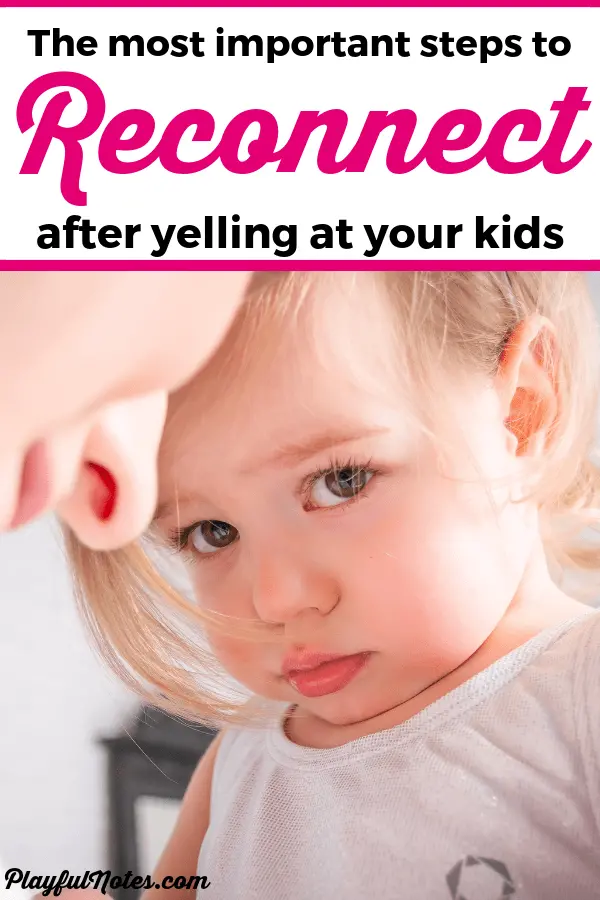
photo credit preview photo: Yulia YasPe / shutterstock.com

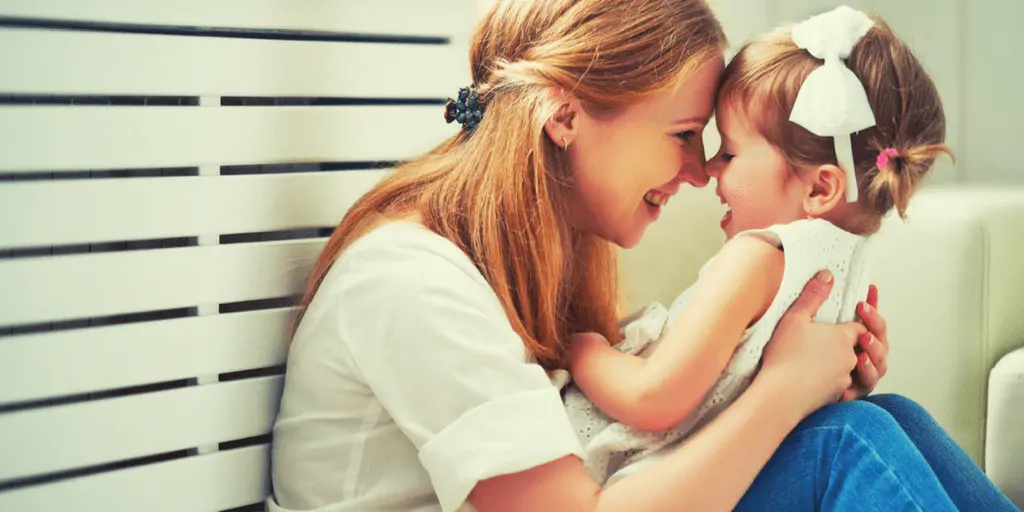
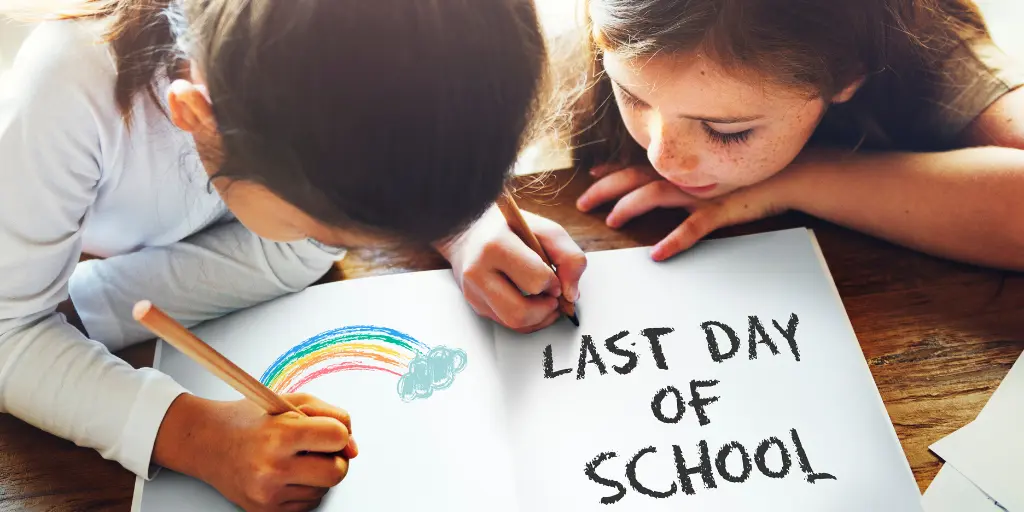
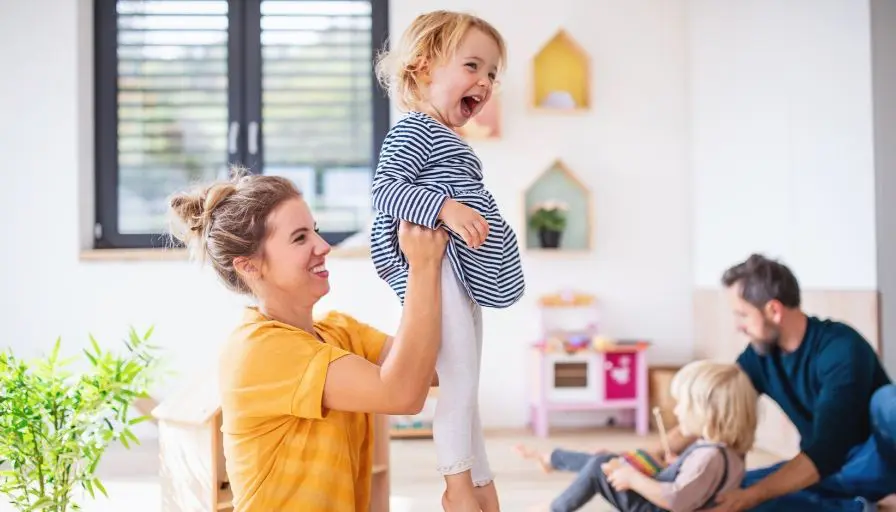
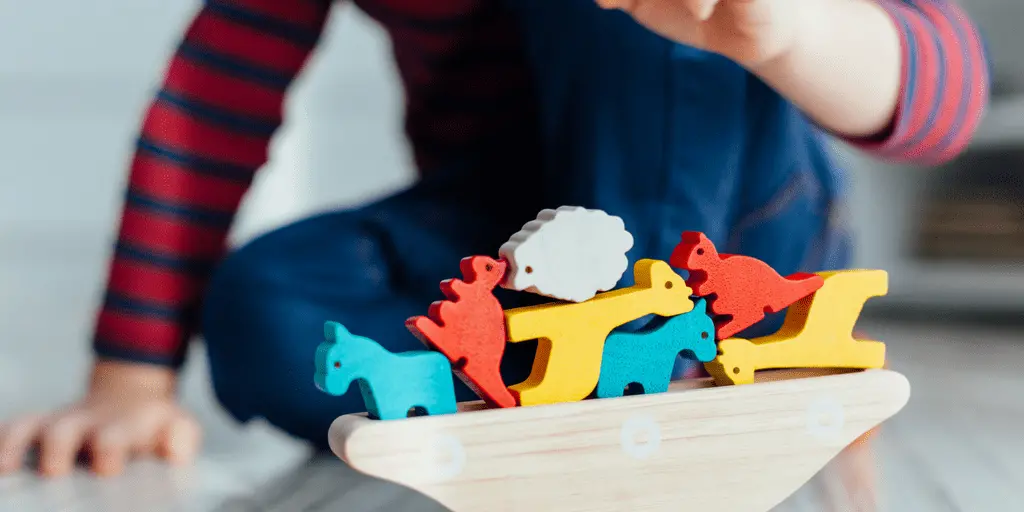
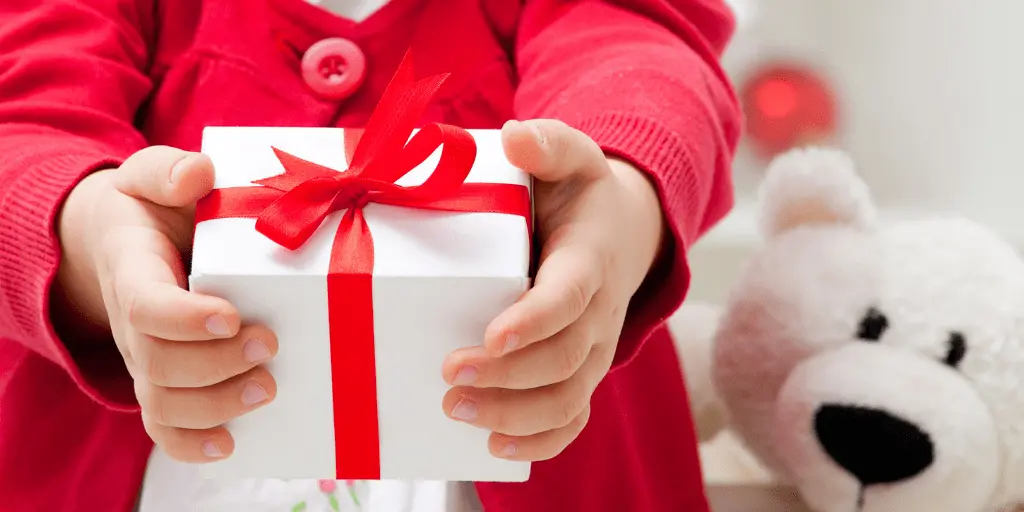
How we treat and communicate with our children will be a big impact on their behavior. These tips are a big help for raising our kids. Great post! ☺️
Truly useful post! I find myself losing my patience way more often than I would like to and sometimes it’s hard to handle. It also brings a huge amount of guilt and self-blame with it. What I usually do is sit down at the end of the day and evaluate what made me lose my patience. Typically it’s because I have way too much on my plate and I get overwhelmed. Thank you for all the advice and for sharing your wisdom and experience in gentle parenting
I love the advice on magic phrase of, “May I try again?” after apologizing. Implies true remorse and an effort to mend communication and maintaining a strong bond with the kiddos 🙂
Read so many blogs about parenting…mostly just address the problem n ineffective solutions…loved all your post. Thanks for all the advice. Will try to be a calmer mom
So your kid consistently disobeyed, broke the birthday present, and caused you to let down your friend…so you apologize to him and don’t address the behavior??? I agree it’s not helpful to yell at your kids, however if my kid is being disrespectful and someone gets upset about that, I’m not teaching her that it’s the other person’s fault because they got upset.